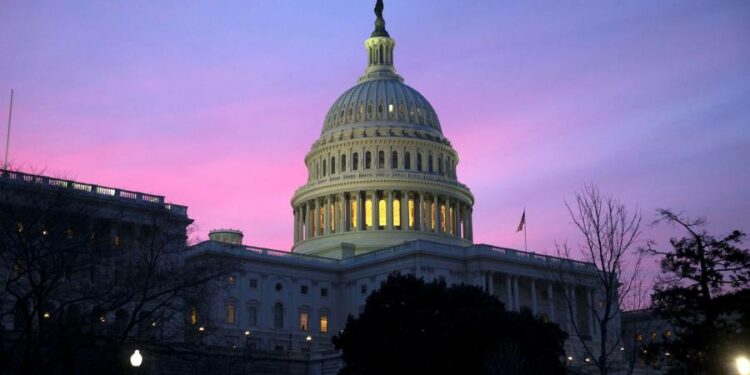A US Senate committee will begin debating a pair of bills designed to reshape technology regulation and restrain the power of Big Tech, which the companies warn could have dire consequences for their products and services.
The Senate judiciary committee is scheduled to discuss the two bills — the American Innovation and Choice Online Act (AICOA) and the Open App Markets Act — on Thursday. If they advance past the committee, the bills will be sent to the Senate floor for a vote.
The central provisions include banning the misuse of data to gain a competitive advantage; biasing search results to favour a search engine’s own products; and any requirements for third-party merchants to pay for a platform’s services in return for more prominent placement.
They represent the most significant effort yet by lawmakers to constrain the power of Big Tech, which stands as one of the few bipartisan concerns in Washington. Thursday’s hearing will give the first indication of whether such legislation might be able to pick up enough bipartisan support to survive being filibustered in the closely split upper chamber.
Corporate lobbyists say they expect the legislation to pass the committee stage with few problems, since four of its Republican members are co-sponsors, including Chuck Grassley, the committee’s most senior Republican.
The bill’s opponents have so far been confident it will not secure the 60 votes needed to advance in the Senate, but there are signs that confidence is waning.
Ahead of the hearing, Big Tech and business lobbyists have lined up in opposition, warning of severe consequences should the bills become law.
“We believe that updating technology regulations in areas like privacy, AI, and protections for kids and families could provide real benefits,” wrote Kent Walker, Google’s chief legal officer. “But breaking our products wouldn’t address any of these issues.”
Brian Huseman, Amazon’s public policy head, claimed the bill singled out the online retailer while “giving preferential treatment to other large retailers that engage in the same practices”.
In a letter obtained by the Financial Times, Apple told the committee the bills “will reward those who have been irresponsible with users’ data and empower bad actors who would target consumers with malware, ransomware, and scams”.
Neil Bradley, chief policy officer at the US Chamber of Commerce, said on Wednesday that the legislation “ultimately will lead us down a pretty dangerous path”.
The Progressive Policy Institute (PPI), a think-tank backed by Big Tech, also released results of research on what it described as the “irreparable harm” that could be inflicted on the US technology industry by AICOA.
The PPI claimed popular products and services would become a shadow of their former selves, “severely” hampering more modern features of Google’s search engine, such as additional functionality when researching flights or finding a restaurant.
“It might look something like search engines from the mid-1990s,” the report said, alongside a screenshot of the Yahoo! website in 1994.
AICOA has, however, found support among smaller technology companies. Earlier this week, a joint letter to the Senate committee, signed by more than 40 tech companies including Google rival DuckDuckGo and audio hardware specialists Sonos, urged the bill’s passage.
“For too long,” the letter read, “dominant technology companies have made it difficult for other businesses to compete in the digital marketplace by abusing their gatekeeper status to give themselves and their partners preferential treatment and access on their platforms.”
Additional reporting by Patrick McGee in San Francisco











